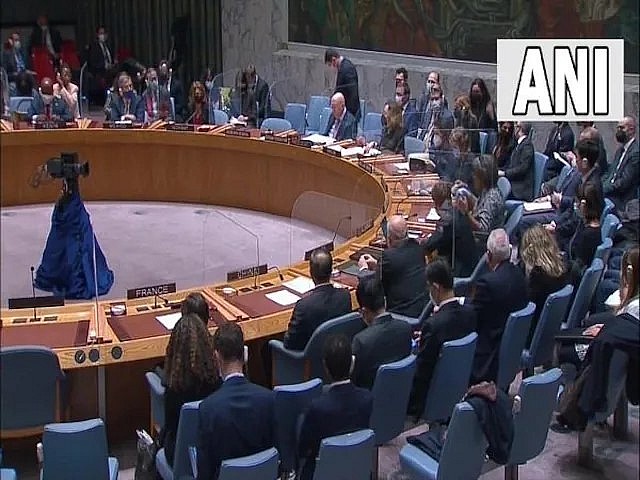 |
| A file picture of UNSC |
Foreign secretary Vinay Kwatra on Saturday said that it is a historical moment that United Nations Security Council’s counterterrorism committee held its deliberations in India’s iconic cities — New Delhi and Mumbai.
“I would thank all the council members for endorsing Delhi Declaration. It is for the first time ever, that the council held its deliberations in two of India’s iconic cities. For the very first time ever, the Security Council came to India and held its discussions in Mumbai and Delhi,” Kwatra said.
The Delhi Declaration was adopted by the UN Security Council Counter-Terrorism Committee which held a special meeting in India focused on new and emerging technologies.
Over the Delhi Declaration that was adopted unanimously by the UN counterterrorism committee, Kwatra said, “Today’s Delhi declaration is not only a commitment to fight terrorism but also a commitment of the Security Council.”
“Delhi declaration marks the commitment of the security council to address this menace. India’s External Affairs Minister would be chairing the briefing of the Security Council in December this year.”
He highlighted that counterterrorism is India’s priority. As India hosted the anti-terrorism meeting of the United Nations Security Council (UNSC) in Mumbai on Friday numerous survivors of the 2008 Mumbai terror attacks outlined their experiences and highlighted that the masterminds behind the attacks were still not behind bars.
Over this, Foreign Secretary Kwatra said, “Yesterday you expressed solidarity with victims. You all heard the first time, the voices of victims still stood up and called for peace and harmony.”
He further apprised the gathering that the discussions earlier on Saturday deliberated on the questions “that confront us. How do we address misuse of drones, internet? How to collectively respond to these new and emerging threats.”
With the adoption of the Delhi Declaration, India decided to work on recommendations on the three themes of the CTC special meeting, namely — “Countering Terrorist Exploitation of ICT and Emerging Technologies”, “Threats and opportunities related to new payment technologies and fundraising methods” and “Threats posed by the misuse of unmanned aerial systems (UAS) by terrorists”.
‘Security Council Reform is Stalled’: India Delivers G4 Statement at UN
The G-4 nations of India, Brazil, Germany and Japan Thursday warned that the longer reform of UN Security Council is stalled, the greater will be its deficit in representation, and enhancing the top decision-making body’s membership will enable it to effectively manage current conflicts.
India’s permanent UNSC seat: UNGA President recognizes India as a mature and respected UN member
Acknowledging India’s substantial contribution to the United Nations and its potential to acquire a permanent seat on the Security Council, Dennis Francis, President of the 78th Session of the UN General Assembly, highlights the council’s outdated structure and its inefficiency in making critical decisions, often influenced by geopolitical factors and the exercise of veto power.








